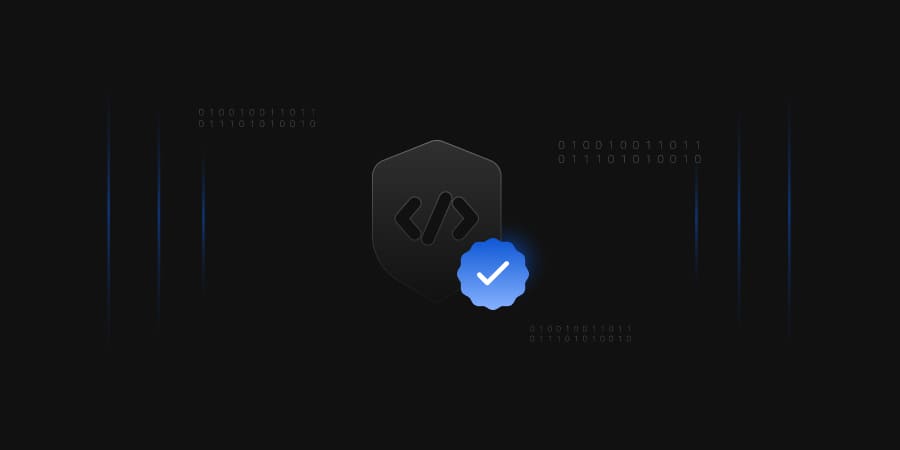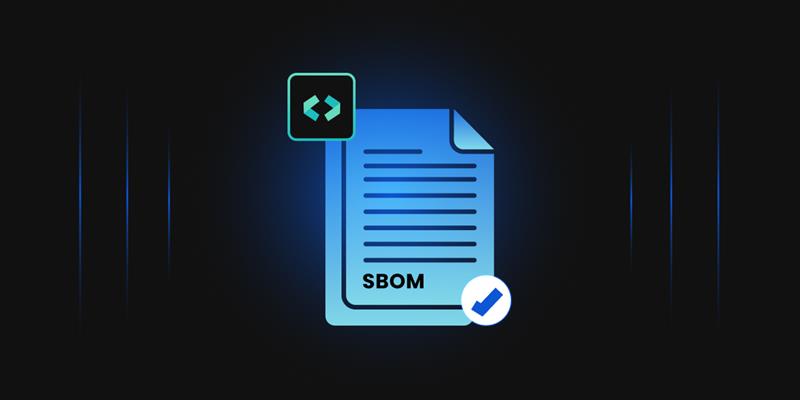Origin Verification in codesigning is a security measure that ensures that the code originates from a trusted source before it is signed and distributed. It comprises the details regarding the source repository and its validating components, such as branch, commit, and build information.
This process helps reduce risks of unauthorized access to code modifications or malicious code; this offers extra security and trust in software development and distribution. This feature is designed for use in environments that require high security and must maintain compliance standards, ensuring safety for both developers and end-users.
Best Practices for Implementing Origin Verification
The best way to implement Origin Verification in your code signing processes is through these recommended methods:
-
Secure your source-code repositories
It is always a good first step to ensure that proper security measures and access controls are in place for your source-code repositories to prevent unauthorized modifications.
-
Implement Multi-Factor Authentication (MFA)
You can enhance security by requiring MFA to access critical systems involved in the code signing and verification process.
-
Automate the Verification Process
Integrating the Origin Verification into your CI/CD pipelines is always a good practice to automate the verification of code sources before signing automatically.
-
Maintain Detailed Audit trails
Keep comprehensive logs of the verification process, including which part of the code was verified, by whom, and the verification outcome.
-
Regularly update and review Policies
Review your origin verification policies regularly to adapt to new security threats and comply with new regulations.
These practices will help ensure that only verified and trusted code is signed and distributed, safeguarding your software supply chain against tampering and unauthorized modifications.
Comparison of Tools and Technologies
When comparing tools and technologies for origin verification, it is very important to consider their integration capabilities with the existing code-signing processes and the level of security they offer. Origin verification uses various tools and technologies, each with unique features and requirements. Some of them are:
-
Code Signing Certificates
Code, scripts, and software programs may all be signed with these certificates. These ensure that the software’s origin is verifiable after it is signed.
-
Strength: Enhances software security by protecting users from downloading tampered applications and helps build trust among users.
-
Weakness: The code signing process’s security depends on its private key’s security. If the key is compromised, the trust in the signed software is lost.
-
Use Case: Best suited for developers and organizations distributing or updating software online.
-
-
Hardware Security Modules (HSMs)
HSMs are physical devices that manage private security keys for strong authentication and provide crypto processes. These are used for securing digital signatures and managing PKI operations.
-
Strength: Provides a highly secure environment for key management processes and protects them against key compromise. These are also tamper-resistant.
-
Weakness: These are expensive to set up and require physical security measures for On-Premise models.
-
Use Case: These are ideal for organizations that require high security for their private keys.
-
The Future of Code Signing with Origin Verification
The future of code signing and origin verification is set to evolve with significant transformations. As cyber security threats become more complex, the mechanism and technologies of code signing must evolve and adapt to ensure digital assets’ continued integrity and trustworthiness. The following are future scenarios of code signing with origin verification:
-
Integration of Advanced Cryptographic Techniques
Quantum-resistant algorithms are gaining attention as quantum computing threatens to destroy many currently used cryptographic processes. Integrating these advanced algorithms into code-signing processes will ensure the security of digital signatures against future threats.
-
Automation and AI in Code Signing Processes
Artificial Intelligence (AI) can help detect anomalies in code signing certificates and digital signatures, which helps identify potential security threats. Automation will help manage keys and certificates, streamlining the code signing processes and reducing the possibilities of human error.
-
Enhanced Revocation and Time-Stamping Mechanisms
Enhanced revocation mechanisms will offer real-time status updates on certificates and digital signatures. Improved time-stamping services will provide more accurate records of when code was signed, ensuring that even old software can maintain integrity.
How Origin Verification complements other Security Practices
Origin Verification enhances and complements other security practices, creating a multi-layered defense strategy. A few of them are:
-
Integration with Encryption
Encryption ensures that data is only accessible to those with the correct decryption key, protecting the integrity of information during transmission or storage. Origin verification complements it by ensuring that the data or software comes from a trusted source and remains untampered. These two combined provide a secure channel that keeps the data private and guarantees its integrity and authenticity.
-
Enhancing Access Control Mechanisms
Origin verification strengthens access control by ensuring that the credentials presented during the authentication process are from a trusted source. This is important in preventing Man-in-the-Middle attacks, where an attacker could intercept and change communications.
With origin verification, even if an attacker were able to intercept the communication, the tampering would be detected, which helps prevent unauthorized access.
-
Supporting Compliance and Trust
Origin verification supports compliance with regulations that protect sensitive information by providing a mechanism to prove that data and software have not been tampered with. It also builds trust among end-users and partners by demonstrating a commitment to security and the authenticity of the digital assets being provided.
Challenges and Solutions in Origin Verification
To guarantee the authenticity and integrity of digital assets, origin verification presents several difficulties. Some of the main challenges are:
-
Key Management and Security
-
Challenge: The security of digital signatures and certificates hinges on the proper management of private keys. If these private keys are compromised, attackers could impersonate the sources and break the trust in origin verification.
-
Solution: Implementing proper key management is very important. This means using Hardware Security Modules (HSMs) to store private keys, implement strict access controls, and regularly audit key usages. Key rotation and expiration policies can also be effective.
-
-
Scalability of Certificate Management
-
Challenge: For large organizations, the number of digital certificates for origin verification is difficult to manage. This can lead to expired certificates, configuration errors, and security vulnerabilities.
-
Solution: Automated certificate management tools and services can help organizations scale their certificate lifecycle management. These tools can automate the renewal and revocation process, which reduces the risk of human error and ensures that certificates are always up to date.
-
-
Trust in Certificate Authorities (CAs)
-
Challenge: PKI’s trust model depends on the CA’s integrity; a compromised or malicious CA could issue fraudulent code signing certificates, affecting the entire trust framework.
-
Solution: To avoid this risk, organizations can implement a multi-CA strategy; trust will be distributed across multiple authorities. Also, Certificate Transparency logs and monitoring services can help detect fraudulent certificate issues in real-time.
-
Conclusion
Origin Verification has emerged as a critical safety feature to ensure the integrity and authenticity of digital assets. An adaptable and comprehensive solution is necessary as organizations struggle with key management, certificate scalability, and regulatory compliance challenges.
Encryption Consulting’s Origin Verifier addresses these issues by offering an advanced, user-friendly tool for implementing origin verification. It provides organizations with the necessary ways to securely manage digital signatures and certificates securely, enhancing overall security with minimum complexity.
Choosing Encryption Consulting LLC means partnering with a trusted organization in digital security solutions. Our innovation commitment ensures businesses can navigate the evolving digital threat confidently. Our Origin Verifier simplifies origin verification and sets a new standard for security excellence in the digital age. For organizations looking to strengthen their security strategies, we at Encryption Consulting offer a pathway for protection with ease and efficiency.




